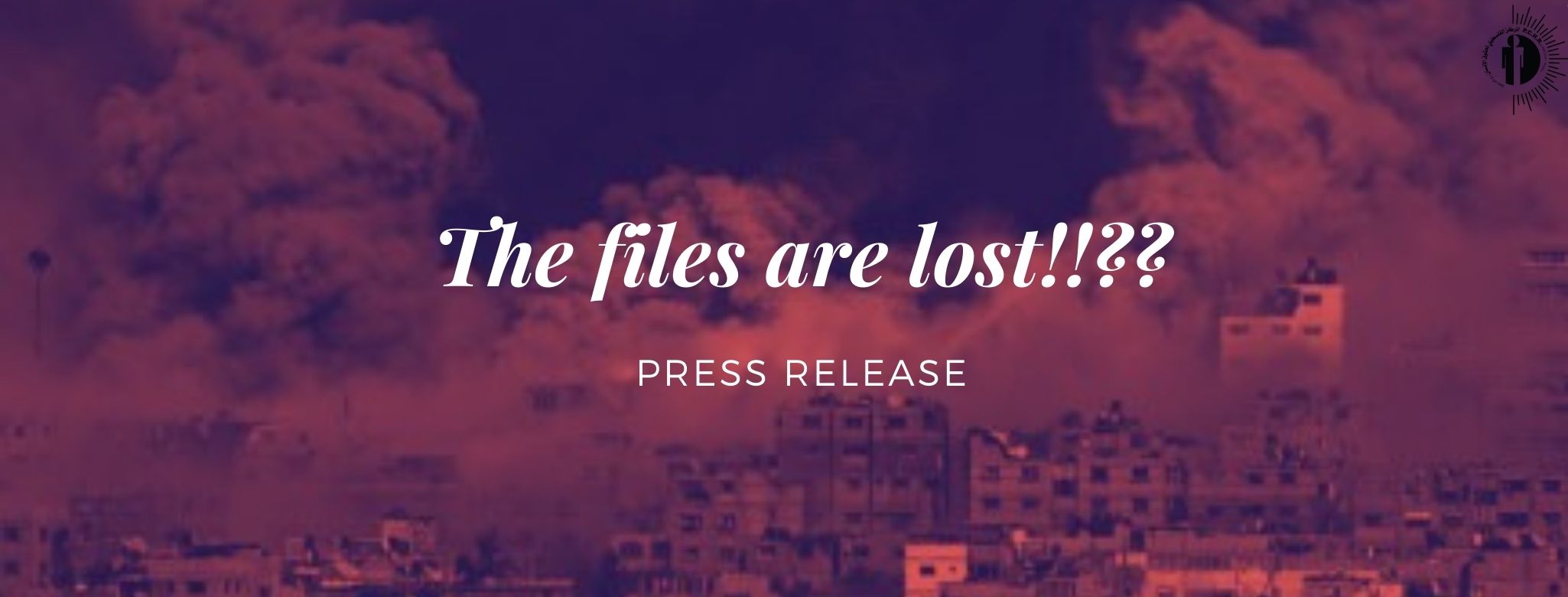
Ref: 129/2020
Date: 7 December 2020
Time: 08:00 GMT
Today, PCHR filed a response to a shocking letter received on 23 August 2020 by lawyer Shlomi Airmazon – Office of the Assistant Attorney General – Special Operations in Israel. Through this letter, PCHR was notified that the Legal Advisor to the Government decided that due to certain circumstances, explained hereafter, the allegations of crimes committed during the November 2012 so-called “Operation Pillar of Defense”, where dozens of Palestinian civilians were killed by the IDF, cannot be investigated.
With the mentioned letter, the Israeli authorities informed us that they have been unable to review the decision taken by the MAG not to open an investigation, because “an essential part of the materials upon which the MAG based their decision not to pursue an investigation were not among those we received.” The Israeli authorities also added (in article 8 of the letter) that they approached the Military Prosecution to collect the missing materials but that the army informed them that any attempt “to collect additional materials, upon which the MAG based their decision not to pursue an investigation, failed.” Essentially, the Israeli authorities informed us that they lost the files regarding the incidents where Palestinian civilians have been killed, allegedly involving (criminal) responsibility by Israeli military authorities.
In particular, the letter refers to the decision not to investigate a number of incidents whereby PCHR submitted complaints on behalf of the victims. The complaints on behalf of Naser, al-Dalou, al-Mzannar, Hamada and al-Adeeb families were submitted during the first half of 2013 and rejected by the Israeli Military Prosecution for “lack of justification for criminal investigation.” PCHR appealed this decision in June 2013, in prelude to submitting a petition with the Supreme Court. On 3 September 2013, the Military Prosecutor, in consultation with the MAG and Deputy State Attorney for Criminal Affairs, decided to reject the appeals. In February 2015, PCHR submitted petitions to the Supreme Court against the decision regarding the files abovementioned and two others. Subsequently, the Israeli authorities informed us that in light of new guidelines issued by the Legal Advisor to the Government that came into effect in April 2015, PCHR should submit our objections to the Legal Advisor to the Government to exhaust all proceedings through his office, all the while preserving our right to petition with the Supreme Court. In compliance with this, the petitions were withdrawn and PCHR submitted 11 objections to the Legal Advisor to the Government, on behalf of the following families: Naser, al-Dalou, al-Mzannar, Hamada and al-Adeeb, Al-Shawa, Nasasra, al-Eisayly, Es’eefan, Abu-Amra, Hajaj, Abu-Saeed, Ibn Sa’eed, and Bareem.
The letter dated 23 August 2020 in fact acknowledges that in 2017 the Legal Advisor to the Government received 11 objections raised by PCHR against the MAG’s decision not to open an investigation into the mentioned incidents, but it claims that “After examining the materials we successfully collected, including the Military Prosecution’s recommendation, it was difficult for us to reach a decision on this matter without access to all of the materials, meaning we could neither accept nor refuse the objections, especially that there is no real possibility for us to take action against the officials responsible for the incidents in question, if the objections were to be accepted”. Shamefully, the Israeli authorities go on trying to blame on us their incredible negligence:
“We regret this, however, although certain measures should be followed to maintain such materials as mentioned in the replies to the petitions, the delay in submitting the objections played a role in this result.”
In any case, as you informed us on 23 August 2020 “the MAG decision remains effective”!
No remedy was offered to the victims, only a superficial expression of regret, and no measures were taken, just “lessons learned” for the next time:
“The Legal Advisor to the Government took the loss of these materials extremely seriously, especially that it alienated the possibility for him to consider and examine the objections. Hence, a meeting was held and chaired by the Legal Advisor to the Government and attended by the MAG, senior members of the Public Prosecution and the Military Prosecution to explore how these objections can be addressed.During the meeting, the MAG expressed that he, too, is gravely concerned over the loss of these materials; as a learnt lesson, a new system was introduced to preserve these materials in a manner that allows easy access and retrieval when needed without issue.”
This is just the last und unbelievable example of the systematic failure by the Israeli authorities to genuinely and effectively investigate any allegation of unlawful killings and other grave crimes committed against Palestinians by Israeli military.
This obligation stems also from international law, pertaining to States’ duty to investigate war crimes, crimes against humanity and genocide allegations. It is also embedded in Article 17 of the Rome Statute of the International Criminal Court. Even though the jurisdiction of the International Criminal Court does not currently cover the incidents at stake, conducting an objective, thorough and impartial investigation is an obligation of States under the principles of customary international law.
… [Trackback]
[…] Read More on that Topic: pchrgaza.org/press-release-the-files-are-lost/ […]